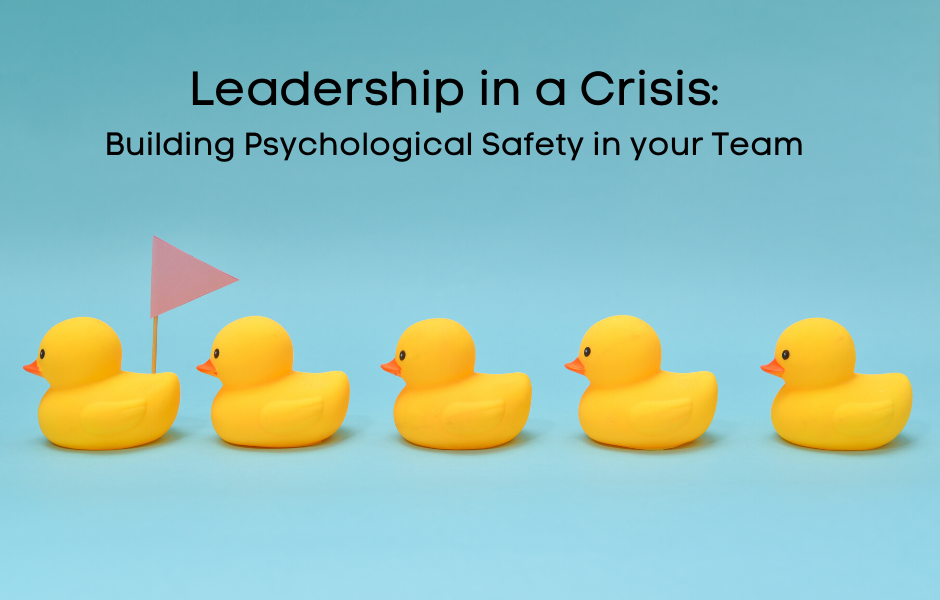We are living through one of the most challenging times in history. Leaders are in uncharted territory navigating the uncertainty of what the future holds. Successful businesses need strong leadership to provide safety in the workplace.
Communicate regularly and promptly
Be visible and accessible. Situations are fast-moving and fluid, requiring consistent updates. Clear communication is essential as vagueness creates anxiety.
Leaders require vulnerability.
We are all unsettled because our safety and security has been shaken to the core. Leaders need to be strong and courageous, but at the same time remain human and vulnerable.
You don’t have to have it all worked out.
The days of waiting to find a perfect solution are gone. Action needs to be taken before all the steps are known. If you wait, you might lose.
“Speed trumps perfection”
The importance of psychological safety.
Leaders need to be extra mindful and intentional. Providing support to your team through this emotional upheaval creates trust and safety in the workplace. Workers want to feel physically safe from sickness but also psychologically safe in the workplace. Remain calm whilst displaying resilience, persistence and kindness.
Listen to your team.
Emotions are a natural part of life and it is normal to feel worried and anxious at this time. If unable to express these emotions people feel further isolated and stressed about having to hide what they feel. Workplace wellbeing studies show that 31% of employees hide their mental health problems, as they don’t feel safe to discuss them. During the coronavirus pandemic over 50% of workers don’t feel safe enough to discuss their concerns, struggles and issues in the workplace. If unable to discuss them, they don’t disappear but instead may surface in unhelpful behaviours and actions.
Ask your team how they’re going.
Unexpressed, negative emotions build energy and cause long-term health problems. Ultimately work performance, attendance and engagement are adversely affected. Most emotions can be fully expressed in a few seconds if someone takes the time to ask and really listen to what someone is feeling.
Now is the time to be present, pay more attention and build real connection with your team. The future workplace is one where everyone works cohesively, providing support and helping each other. Listening to the concerns of the team, showing empathy and finding solutions together will build strength to face whatever the future brings.



